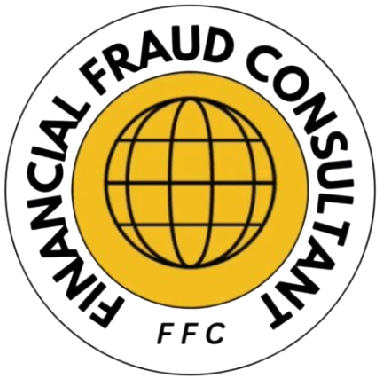
The temptation might flicker – a shortcut to acquiring what you desire, a perceived way out of financial straits. But the allure of credit card fraud is a mirage that quickly dissolves into the harsh realities of legal, financial, and personal devastation. Engaging in such activities, whether a seemingly minor transgression or a sophisticated scheme, carries profound consequences that extend far beyond a simple slap on the wrist. This blog delves deep into the multi-layered repercussions of getting caught in the act of credit card fraud, drawing insights from the legal ramifications to the long-term societal impacts.
The Initial Dragnet: From Suspicion to Apprehension
The journey from fraudulent activity to facing its consequences often begins with the silent watchdogs of the financial world: sophisticated fraud detection systems. Banks and credit card companies employ intricate algorithms that flag anomalies – unusual spending patterns, transactions from unfamiliar locales, or the input of invalid card details. Once an irregularity pings these systems, an investigation is initiated. This initial probe might be internal, but if the suspicion solidifies or the scale of the potential fraud is significant, law enforcement agencies step in.
The moment of reckoning often arrives with an unexpected knock on the door or a routine stop that takes an unforeseen turn. An arrest for credit card fraud can be a disorienting and terrifying experience, culminating in being taken into custody, processed, and potentially detained pending further investigation or a bail hearing. This initial encounter marks the beginning of a journey through the legal system, a path fraught with serious implications.
Navigating the Legal Maze: Charges, Prosecution, and the Specter of Penalties
Upon arrest, the legal machinery begins to turn. The specific charges levied against you will depend on a confluence of factors: the monetary value involved, the intricacy of the fraudulent methods employed, your prior legal history, and the specific jurisdiction where the crime occurred. Common charges associated with credit card fraud include:
- Credit Card Theft: The unauthorized acquisition of another person’s credit card. As highlighted by “Is Credit Card Theft a Felony or Misdemeanor? Know the Law!,” the severity of this charge can escalate from a misdemeanor to a felony based on the value of the illicitly obtained goods or services and any prior convictions. A felony conviction carries the weight of significant prison sentences and substantial financial penalties.
- Fraudulent Use of a Credit Card: The act of using a stolen, forged, or otherwise unlawfully obtained credit card for personal gain.
- Identity Theft: If the commission of credit card fraud involves the misappropriation of someone’s personal information to obtain or utilize credit, charges of identity theft can also be brought, compounding the potential penalties.
- Forgery: The alteration or creation of counterfeit credit cards or related documentation, a serious offense in its own right.
The prosecution will meticulously construct its case, presenting evidence ranging from transaction logs and eyewitness accounts to digital forensics in instances of online fraud. You will, of course, have the right to legal counsel, and the legal process may involve arraignments, preliminary hearings, the possibility of plea bargains, and ultimately a trial if no agreement is reached.
The penalties that can be imposed upon conviction are far-reaching and punitive:
- Substantial Fines: Ranging from hundreds to hundreds of thousands of dollars, these financial penalties aim to punish the offender and potentially provide restitution to the victims.
- Incarceration: Jail or prison sentences are a tangible threat, particularly in felony cases or for individuals with a history of similar offenses. The duration of confinement can vary dramatically based on the specifics of the crime.
- Probation or Parole: Following a period of incarceration, you might be placed under the supervision of probation or parole officers, adhering to strict conditions. Any violation of these terms can lead to further imprisonment.
- A Permanent Criminal Record: This is a lasting scar, potentially hindering future opportunities in employment, housing, and various other aspects of life.
The Tangled Web of Online Fraud: Digital Crimes, Digital Consequences
In our increasingly interconnected world, a significant portion of credit card fraud unfolds in the digital realm. As illuminated by “Online Fraud Penalties Explained: Jail Time, Fines & More,” the virtual nature of these crimes does not diminish their severity. In fact, online fraud can often involve broader schemes and impact a larger number of victims, potentially leading to even more stringent penalties.
Methods of online credit card fraud are diverse and constantly evolving, including sophisticated phishing campaigns designed to pilfer sensitive data, insidious e-skimming attacks that silently harvest payment information from compromised websites, and the exploitation of vast troves of data compromised in large-scale breaches. When caught engaging in these digital deceptions, the prosecution can leverage a wealth of digital evidence, such as IP addresses, email trails, and transaction records, to build a compelling case. The penalties mirror those of traditional credit card fraud but can be amplified by charges related to computer crimes, reflecting the unique aspects of these digital offenses.
The Lingering Shadow: The Long-Term Impact of a Criminal Record
The immediate legal and financial repercussions of a credit card fraud conviction are significant, but the shadow of a criminal record extends far into the future, impacting numerous facets of life:
- Employment Barriers: Many employers conduct background checks, and a conviction for a crime of dishonesty like fraud can severely limit your job prospects, particularly in sectors requiring trust and financial responsibility.
- Housing Difficulties: Landlords often perform background checks on potential tenants, and a criminal record can make securing housing a significant challenge.
- Educational Limitations: While less common, a criminal record might restrict access to certain educational programs or professional licensures.
- Travel Restrictions: Depending on the country and the nature of the offense, international travel can be significantly curtailed.
- Financial Constraints: Banks and credit unions may be reluctant to offer services to individuals with a history of fraud, making it harder to manage finances and access credit.
- Social Stigma: Beyond the practical limitations, the social stigma associated with a criminal conviction can strain personal relationships and hinder community reintegration.
The enduring nature of a criminal record serves as a stark reminder of the far-reaching consequences of credit card fraud, underscoring the importance of ethical and legal conduct.
The Victim’s Plight: When Banks Step In (And When They Don’t)
While the focus here is on the perpetrator, it’s crucial to acknowledge the victims of credit card fraud. As highlighted in “Scammed Online? Here’s When Banks Will (And Won’t) Refund You,” the ability of victims to recover lost funds varies. In cases of unauthorized transactions resulting from theft or account compromise, banks often have policies to protect consumers, typically limiting their liability, provided the fraud is reported promptly.
However, the landscape shifts when individuals are deceived into willingly transferring funds, as is common in various online scams. In these instances, recovering the money can be considerably more challenging, as banks may argue that the transaction was authorized by the account holder. Nevertheless, banks may sometimes offer refunds if they identify clear indicators of fraud that should have triggered internal alerts or if specific policies address certain types of scams. The speed of reporting a suspected scam is paramount in maximizing the chances of fund recovery.
Understanding the Scope: What Constitutes Transaction Card Fraud?
The title “Transaction Card Fraud Explained: What It Is & How to Stay Safe” broadens our perspective, highlighting that credit card fraud is a subset of a larger category: transaction card fraud. This encompasses any fraudulent activity involving payment cards, including debit cards and other payment mechanisms. From the use of stolen cards to the creation of counterfeit ones and the manipulation of payment terminals, transaction card fraud takes many forms. Protecting oneself against this broader category of fraud requires vigilance in how payment cards are used, safeguarding PINs and security details, and diligently monitoring account statements for any suspicious activity.
The Steep Price of Deception: A Final Reflection
Committing credit card fraud, regardless of the perceived scale or method, carries profound risks and severe consequences. The immediate legal ramifications, including potential imprisonment and hefty fines, are just the tip of the iceberg. The long-term impact of a criminal record can permeate nearly every aspect of life, from career prospects to personal relationships. Understanding these realities serves as a powerful deterrent, emphasizing that the fleeting allure of fraudulent gains pales in comparison to the enduring and devastating consequences of getting caught. Choosing financial integrity and seeking lawful solutions to financial challenges is always the wiser path, avoiding the steep price that comes with deception.
Recover Hacked Crypto Wallet
When your crypto wallet is hacked, our specialists offer expert guidance and advanced tools to investigate, trace, and recover your digital assets, minimizing further loss. Contact NOW




